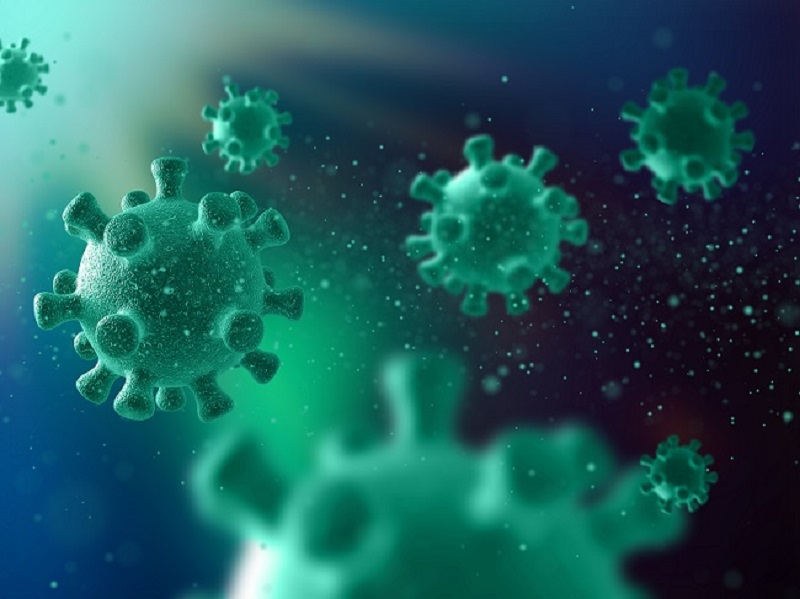Cancer is defined by the uncontrollable growth of abnormal cells in the body, making them exceed their usual boundaries thereby invading the other body organs. Cancer is ranked second after cardiovascular disease, as the leading cause of death worldwide, with approximately one in six deaths.
Infections occur following exposure to certain infectious agents (pathogens) be it bacteria or viruses. As this infection progresses, it may lead to a specific type of cancer. Cancer is characterized by a continual and uncontrolled growth of cells forming a mass of tissue that may spread to other body parts. The progression of certain infections to cancer is mediated through several different mechanisms which include but are not limited to alteration in the normal function of the immune system, inflammation and alteration in the normal function of a gene.
Carcinogenic infections mainly caused by viruses and bacteria are known to significantly contribute to the global cancer burden. This is observed predominantly in Africa and other underdeveloped, and developing countries. These infections are regarded as an important cause of cancer and are known to account for 16.1% of all cancer cases globally in the year 2018.
According to the International Agency for Research on Cancer (IARC), there are 11 infectious agents, otherwise referred to as group 1, which have been implicated as the major causes of infectious cancers. These are viruses; (hepatitis B and C (HBV and HCV) causing liver cancer, human T-cell leukaemia virus type 1 (HTLV-1) causing Adult T-cell leukaemia/lymphoma (ATL), high-risk human papillomavirus (HPV), and their 12 different subtypes (type16, 18, 31, 33, 35, 39, 45, 51, 52, 56, 58, and 59) causing cervical cancer, human herpesvirus type 8 (HHV-8) causing Kaposi sarcoma “rare cancer of the immune cell, with lesions growing in the mouth, throat, skin, and tissues”, Epstein-Barr virus (EBV) “linked with nasopharyngeal cancers, Burkitt and non-Hodgkin lymphoma” and bacteria (Helicobacter pylori causing gastric cancer) and parasites (Schistosoma haematobium causing bladder squamous cell carcinoma, Clonorchis sinensis causing cancers of biliary duct system “bile ducts and gall bladder”, and Opisthorchis viverrini causing stomach cancer).

Cancer accounts for 18.1 million cases annually. In 2018, it is estimated that 9.6 million people died of cancer worldwide. The cases of cancer in Nigeria, sub-Saharan Africa, and other developing countries are worrisome going by the projections that by the year 2030, the developing countries with Nigeria inclusive will account for approximately 70% of all new cancer cases, with approximately 13.1 million mortalities. This is mainly attributed to an increase in life expectancy and population growth, increased prevalence of obesity, physical inactivity, and smoking.
In Nigeria, along with other underdeveloped, and developing countries, once a patient is diagnosed with cancer, the high level of fear with which the patient’s family developed, made the populace including the elite class consider it a direct death sentence. This may be attributed to the fact that cancer is deadly, and the burden of the disease is expanding. In Nigeria and other African countries, high cases of mortality due to cancer are contributed to the unprepared nature of most health systems, the high cost of treatment, the absence of healthcare providers in remote villages and towns, and the lack of access to timely and high-quality diagnosis and treatment.
Nigeria’s cancer cases are characterized by a high case-fatality ratio. The annual cases of cancer in Nigeria are increasing. According to a study conducted in 2012, Nigeria records approximately 100 000 new cases of cancer per year, with 15% of the total (681,000) cases in Africa. According to new studies conducted in the year 2020, Nigeria records 102,000 new cases annually with approximately 72,000 deaths.
Comparing the two estimates, a decreasing trend in overall cancer deaths is observed, and this might not be in connection with the increased level of government intervention, awareness, and the location in which the studies were conducted. Despite the reduction in the death rate, the level remains alarmingly high.
Cancer Prevention and Control Strategies
By the modification or avoidance of key risk factors, high cancer mortality (30 -50%) can be preventable. More so, the implementation of evidence-based prevention strategies has been found to drastically reduce the burden of most cancers. These include early hospital visits for diagnosis, early detection, and management.
Part of the keyway to the prevention of cancers include; regular exercise, safe sex, taking healthy diet, avoiding contact with indoor and urban polluted air, regular, timely, and qualitative health care, treatment of chronic infections, reduced exposure to ultraviolet radiation, effective vaccination against HPV, HBV, and HCV, abstinence or regulated alcohol and tobacco use, and above all living a healthy lifestyle.
Reference
A. S, E. HS, O. E and L. I., (2017). “Breast cancer mortality in a resource-poor country: A 10-year experience in a tertiary institution,” Sahel Medical Journal, vol. 20, no. 3, p. 93, 2017.
C. d. M. Martyn Plummer, J. Vignat, J. Ferlay, F. Bray and S. Franceschi. (2016). “Global burden of cancers attributable to infections in 2012: a synthetic analysis,” Lancet Glob Health, vol. 4, 2016.
E. Jedy-Agbaa, M. P. Curado, O. Ogunbiyi, E. Oga, T. Fabowale, F. Igbinoba, G. Osubor, T. Out, H. Kumai, A. Koechlin, P. D. Patience Osinubi, W. Blattner and a. C. A. Adebamowo, (2012). “Cancer Incidence in Nigeria: A Report from Population-based Cancer Registries,” Cancer Epidemiol., vol. 36, no. 5 (e271–e278).
